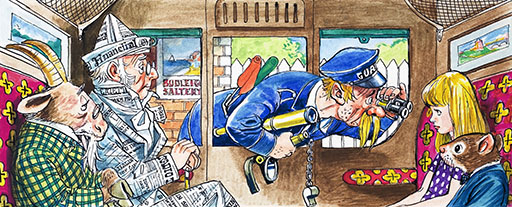2.1 Women as the ‘Other’

Beauvoir claims that there is no such thing as the ‘essence’ of woman; in other words, she does not think that women are in a certain way that cannot change, or be changed. At the same time, she claims that a woman cannot escape, in current societies, her situation of being a woman. As you saw, she writes ‘[r]ejecting the notion of the eternal feminine … is not to deny that there are today … women’. But how can we then say that some human beings are women? You will see what Beauvoir says about this.
Activity 3 Simone de Beauvoir – The Second Sex (Part B)
First read the whole of the extract, then re-read the paragraphs as directed in the questions below. Do not worry if some of the language and terminology in this reading is unclear.
And the truth is that anyone can clearly see that humanity is split into two categories of individuals with manifestly different clothes, faces, bodies, smiles, movements, interests and occupations; these differences are perhaps superficial; perhaps they are destined to disappear. What is certain is that for the moment they exist in a strikingly obvious way. If the female function is not enough to define woman, and if we also reject the explanation of the ‘eternal feminine’, but if we accept, even temporarily, that there are women on the earth, we then have to ask: what is a woman? Merely stating the problem suggests an immediate answer to me. It is significant that I pose it. It would never occur to a man to write a book on the singular situation of males in humanity. If I want to define myself, I first have to say, ‘I am a woman’; all other assertions will arise from this basic truth. A man never begins by positing himself as an individual of a certain sex: that he is a man is obvious. The categories ‘masculine’ and ‘feminine’ appear as symmetrical in a formal way on town hall records or identification papers. The relation of the two sexes is not that of two electrical poles: the man represents both the positive and the neuter to such an extent that in French hommes designates human beings, the particular meaning of the word vir [Latin] being assimilated into the general meaning of the word ‘homo’. Woman is the negative, to such a point that any determination is imputed to her as a limitation, without reciprocity. I used to get annoyed in abstract discussions to hear men tell me: ‘You think such and such a thing because you’re a woman.’ But I know my only defence is to answer, ‘I think it because it is true,’ thereby eliminating my subjectivity; it was out of the question to answer, ‘And you think the contrary because you are a man,’ because it is understood that being a man is not a particularity; a man is in his right by virtue of being man; it is the woman who is in the wrong.
Woman has ovaries and a uterus; such are the particular conditions that lock her in her subjectivity; some even say she thinks with her hormones. Man vainly forgets that his anatomy also includes hormones and testicles. He grasps his body as a direct and normal link with the world that he believes he apprehends in all objectivity, whereas he considers woman’s body an obstacle, a prison, burdened by everything that particularises it. ‘The female is female by virtue of a certain lack of qualities,’ Aristotle said. ‘We should regard women’s nature as suffering from natural defectiveness.’ And St Thomas in his turn decreed that woman was an ‘incomplete man’, an ‘incidental’ being. This is what the Genesis story symbolises, where Eve appears as if drawn from Adam’s ‘supernumerary’ bone, in Bossuet’s words. Humanity is male, and man defines woman, not in herself, but in relation to himself; she is not considered an autonomous being.
She determines and differentiates herself in relation to man, and he does not in relation to her; she is the inessential in front of the essential. He is the Subject; he is the Absolute. She is the Other.
The duality between Self and Other can be found in the most primitive societies, in the most ancient mythologies… No group ever defines itself as One without immediately setting up the Other opposite itself. It only takes three travellers brought together by chance in the same train compartment for the rest of the travellers to become vaguely hostile ‘others’. Village people view anyone not belonging to the village as suspicious ‘others’. For the native of a country, inhabitants of other countries are viewed as ‘foreigners’; Jews are the ‘others’ for anti-Semites, blacks for racist Americans, indigenous people for colonists, proletarians for the propertied classes.
But the other consciousness has an opposing reciprocal claim: travelling, a local is shocked to realise that in neighbouring countries locals view him as a foreigner; between villages, clans, nations and classes there are wars, potlatches, agreements, treaties and struggles that remove the absolute meaning from the idea of the Other and bring out its relativity; whether one likes it or not, individuals and groups have no choice but to recognise the reciprocity of their relation. How is it, then, that between the sexes this reciprocity has not been put forward, that one of the terms has been asserted as the only essential one, denying any relativity in regard to its correlative, defining the latter as pure alterity? Why do women not contest male sovereignty? No subject posits itself spontaneously and at once as the inessential from the outset; it is not the Other who, defining itself as Other, defines the One; the Other is posited as Other by the One positing itself as One. But in order for the Other not to turn into the One, the Other has to submit to this foreign point of view. Where does this submission in woman come from?
1. Re-read from the beginning to the end of the second paragraph (…an autonomous being) and explain why for Beauvoir ‘woman’ and ‘man’ are not two equivalent categories of human beings.
Answer
Men and women are not two equivalent categories of human beings because men are also seen as ‘neutral’ human beings, who represent the species beyond sexual differences. Women, on the other hand, are always seen as a particular type of human being. Even their bodies are regarded as a variation on a supposed neutral type, and their physiology is seen as meaningful, in a way that male physiology is not.
2. Re-read the remainder of Part B. Beauvoir explains that human beings regard themselves as a Subject, or essential, or ‘the One’, and pose other people as ‘Others’. Groups do the same: people for instance often regard themselves as belonging to a nation, and regard people who do not belong to their nation as foreigners, or ‘others’. Does Beauvoir think that the same happens to women and men, namely that men regard women as ‘others’ (not men) and women regard men as ‘others’ (not women) in a symmetrical way?
Answer
No. Groups of people, such as people belonging to a national group, are aware that they themselves are the ‘others’ of people belonging to another group. So, for instance, a French person would be aware that other nations regard her as a ‘foreigner’. By contrast, women are always the ‘other’ of a supposedly neutral way of being human, which is seen as embodied by men.
